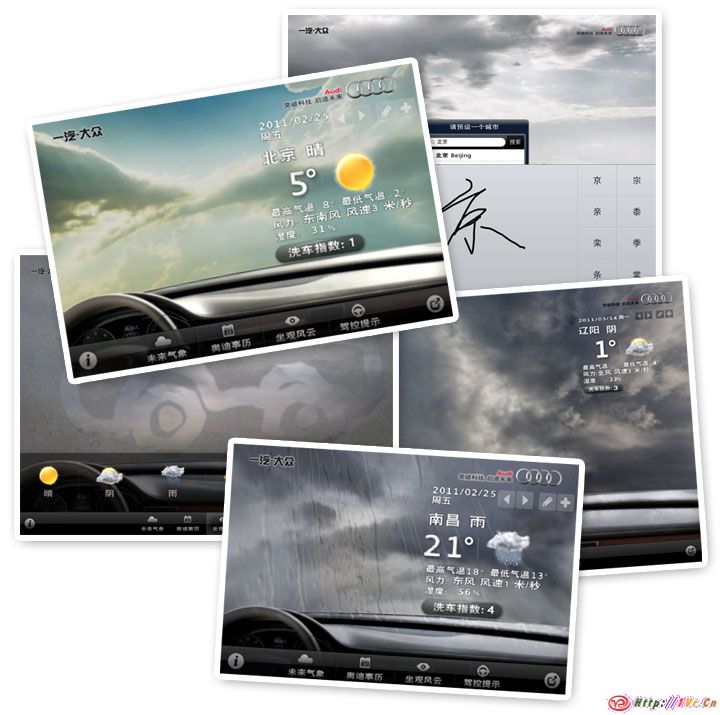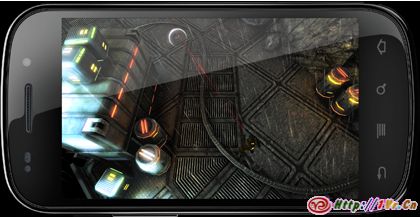这个脚本可以导出Unity的网格资源为模型文件,是利用bjExporter.MeshToString()创建一个文本字符串构成的Obj文件.或者用ObjExporter.MeshToFile()直接保存为一个文件.
将下面2个脚本保存再Editor文件夹中,然后选择一个网格对象,在Custom菜单中根据需要选择导出为Obj文件.文件将被保存在项目目录的ExportedObj文件夹中.
文件名: ObjExporter.cs
using UnityEngine;
using System.Collections;
using System.IO;
using System.Text;
public class ObjExporter {
public static string MeshToString(MeshFilter mf) {
Mesh m = mf.mesh;
Material[] mats = mf.renderer.sharedMaterials;
StringBuilder sb = new StringBuilder();
sb.Append("g ").Append(mf.name).Append("
");
foreach(Vector3 v in m.vertices) {
sb.Append(string.Format("v {0} {1} {2}
",v.x,v.y,v.z));
}
sb.Append("
");
foreach(Vector3 v in m.normals) {
sb.Append(string.Format("vn {0} {1} {2}
",v.x,v.y,v.z));
}
sb.Append("
");
foreach(Vector3 v in m.uv) {
sb.Append(string.Format("vt {0} {1}
",v.x,v.y));
}
for (int material=0; material < m.subMeshCount; material ++) {
sb.Append("
");
sb.Append("usemtl ").Append(mats[material].name).Append("
");
sb.Append("usemap ").Append(mats[material].name).Append("
");
int[] triangles = m.GetTriangles(material);
for (int i=0;i<triangles.Length;i+=3) {
sb.Append(string.Format("f {0}/{0}/{0} {1}/{1}/{1} {2}/{2}/{2}
",
triangles[i]+1, triangles[i+1]+1, triangles[i+2]+1));
}
}
return sb.ToString();
}
public static void MeshToFile(MeshFilter mf, string filename) {
using (StreamWriter sw = new StreamWriter(filename))
{
sw.Write(MeshToString(mf));
}
}
}
文件名: EditorObjExporter.cs
/*
Based on ObjExporter.cs, this "wrapper" lets you export to .OBJ directly from the editor menu.
This should be put in your "Editor"-folder. Use by selecting the objects you want to export, and select
the appropriate menu item from "Custom->Export". Exported models are put in a folder called
"ExportedObj" in the root of your Unity-project. Textures should also be copied and placed in the
same folder. */
using UnityEngine;
using UnityEditor;
using System.Collections;
using System.Collections.Generic;
using System.IO;
using System.Text;
using System;
struct ObjMaterial
{
public string name;
public string textureName;
}
public class EditorObjExporter : ScriptableObject
{
private static int vertexOffset = 0;
private static int normalOffset = 0;
private static int uvOffset = 0;
//User should probably be able to change this. It is currently left as an excercise for
//the reader.
private static string targetFolder = "ExportedObj";
private static string MeshToString(MeshFilter mf, Dictionary<string, ObjMaterial> materialList)
{
Mesh m = mf.sharedMesh;
Material[] mats = mf.renderer.sharedMaterials;
StringBuilder sb = new StringBuilder();
sb.Append("g ").Append(mf.name).Append("
");
foreach(Vector3 lv in m.vertices)
{
Vector3 wv = mf.transform.TransformPoint(lv);
//This is sort of ugly - inverting x-component since we're in
//a different coordinate system than "everyone" is "used to".
sb.Append(string.Format("v {0} {1} {2}
",-wv.x,wv.y,wv.z));
}
sb.Append("
");
foreach(Vector3 lv in m.normals)
{
Vector3 wv = mf.transform.TransformDirection(lv);
sb.Append(string.Format("vn {0} {1} {2}
",-wv.x,wv.y,wv.z));
}
sb.Append("
");
foreach(Vector3 v in m.uv)
{
sb.Append(string.Format("vt {0} {1}
",v.x,v.y));
}
for (int material=0; material < m.subMeshCount; material ++) {
sb.Append("
");
sb.Append("usemtl ").Append(mats[material].name).Append("
");
sb.Append("usemap ").Append(mats[material].name).Append("
");
//See if this material is already in the materiallist.
try
{
ObjMaterial objMaterial = new ObjMaterial();
objMaterial.name = mats[material].name;
if (mats[material].mainTexture)
objMaterial.textureName = EditorUtility.GetAssetPath(mats[material].mainTexture);
else
objMaterial.textureName = null;
materialList.Add(objMaterial.name, objMaterial);
}
catch (ArgumentException)
{
//Already in the dictionary
}
int[] triangles = m.GetTriangles(material);
for (int i=0;i<triangles.Length;i+=3)
{
//Because we inverted the x-component, we also needed to alter the triangle winding.
sb.Append(string.Format("f {1}/{1}/{1} {0}/{0}/{0} {2}/{2}/{2}
",
triangles[i]+1 + vertexOffset, triangles[i+1]+1 + normalOffset, triangles[i+2]+1 + uvOffset));
}
}
vertexOffset += m.vertices.Length;
normalOffset += m.normals.Length;
uvOffset += m.uv.Length;
return sb.ToString();
}
private static void Clear()
{
vertexOffset = 0;
normalOffset = 0;
uvOffset = 0;
}
private static Dictionary<string, ObjMaterial> PrepareFileWrite()
{
Clear();
return new Dictionary<string, ObjMaterial>();
}
private static void MaterialsToFile(Dictionary<string, ObjMaterial> materialList, string folder, string filename)
{
using (StreamWriter sw = new StreamWriter(folder + "/" + filename + ".mtl"))
{
foreach( KeyValuePair<string, ObjMaterial> kvp in materialList )
{
sw.Write("
");
sw.Write("newmtl {0}
", kvp.Key);
sw.Write("Ka 0.6 0.6 0.6
");
sw.Write("Kd 0.6 0.6 0.6
");
sw.Write("Ks 0.9 0.9 0.9
");
sw.Write("d 1.0
");
sw.Write("Ns 0.0
");
sw.Write("illum 2
");
if (kvp.Value.textureName != null)
{
string destinationFile = kvp.Value.textureName;
int stripIndex = destinationFile.LastIndexOf('/');//FIXME: Should be Path.PathSeparator;
if (stripIndex >= 0)
destinationFile = destinationFile.Substring(stripIndex + 1).Trim();
string relativeFile = destinationFile;
destinationFile = folder + "/" + destinationFile;
Debug.Log("Copying texture from " + kvp.Value.textureName + " to " + destinationFile);
try
{
//Copy the source file
File.Copy(kvp.Value.textureName, destinationFile);
}
catch
{
}
sw.Write("map_Kd {0}", relativeFile);
}
sw.Write("
");
}
}
}
private static void MeshToFile(MeshFilter mf, string folder, string filename)
{
Dictionary<string, ObjMaterial> materialList = PrepareFileWrite();
using (StreamWriter sw = new StreamWriter(folder +"/" + filename + ".obj"))
{
sw.Write("mtllib ./" + filename + ".mtl
");
sw.Write(MeshToString(mf, materialList));
}
MaterialsToFile(materialList, folder, filename);
}
private static void MeshesToFile(MeshFilter[] mf, string folder, string filename)
{
Dictionary<string, ObjMaterial> materialList = PrepareFileWrite();
using (StreamWriter sw = new StreamWriter(folder +"/" + filename + ".obj"))
{
sw.Write("mtllib ./" + filename + ".mtl
");
for (int i = 0; i < mf.Length; i++)
{
sw.Write(MeshToString(mf[i], materialList));
}
}
MaterialsToFile(materialList, folder, filename);
}
private static bool CreateTargetFolder()
{
try
{
System.IO.Directory.CreateDirectory(targetFolder);
}
catch
{
EditorUtility.DisplayDialog("Error!", "Failed to create target folder!", "");
return false;
}
return true;
}
[MenuItem ("Custom/Export/Export all MeshFilters in selection to separate OBJs")]
static void ExportSelectionToSeparate()
{
if (!CreateTargetFolder())
return;
Transform[] selection = Selection.GetTransforms(SelectionMode.Editable | SelectionMode.ExcludePrefab);
if (selection.Length == 0)
{
EditorUtility.DisplayDialog("No source object selected!", "Please select one or more target objects", "");
return;
}
int exportedObjects = 0;
for (int i = 0; i < selection.Length; i++)
{
Component[] meshfilter = selection[i].GetComponentsInChildren(typeof(MeshFilter));
for (int m = 0; m < meshfilter.Length; m++)
{
exportedObjects++;
MeshToFile((MeshFilter)meshfilter[m], targetFolder, selection[i].name + "_" + i + "_" + m);
}
}
if (exportedObjects > 0)
EditorUtility.DisplayDialog("Objects exported", "Exported " + exportedObjects + " objects", "");
else
EditorUtility.DisplayDialog("Objects not exported", "Make sure at least some of your selected objects have mesh filters!", "");
}
[MenuItem ("Custom/Export/Export whole selection to single OBJ")]
static void ExportWholeSelectionToSingle()
{
if (!CreateTargetFolder())
return;
Transform[] selection = Selection.GetTransforms(SelectionMode.Editable | SelectionMode.ExcludePrefab);
if (selection.Length == 0)
{
EditorUtility.DisplayDialog("No source object selected!", "Please select one or more target objects", "");
return;
}
int exportedObjects = 0;
ArrayList mfList = new ArrayList();
for (int i = 0; i < selection.Length; i++)
{
Component[] meshfilter = selection[i].GetComponentsInChildren(typeof(MeshFilter));
for (int m = 0; m < meshfilter.Length; m++)
{
exportedObjects++;
mfList.Add(meshfilter[m]);
}
}
if (exportedObjects > 0)
{
MeshFilter[] mf = new MeshFilter[mfList.Count];
for (int i = 0; i < mfList.Count; i++)
{
mf[i] = (MeshFilter)mfList[i];
}
string filename = EditorApplication.currentScene + "_" + exportedObjects;
int stripIndex = filename.LastIndexOf('/');//FIXME: Should be Path.PathSeparator
if (stripIndex >= 0)
filename = filename.Substring(stripIndex + 1).Trim();
MeshesToFile(mf, targetFolder, filename);
EditorUtility.DisplayDialog("Objects exported", "Exported " + exportedObjects + " objects to " + filename, "");
}
else
EditorUtility.DisplayDialog("Objects not exported", "Make sure at least some of your selected objects have mesh filters!", "");
}
[MenuItem ("Custom/Export/Export each selected to single OBJ")]
static void ExportEachSelectionToSingle()
{
if (!CreateTargetFolder())
return;
Transform[] selection = Selection.GetTransforms(SelectionMode.Editable | SelectionMode.ExcludePrefab);
if (selection.Length == 0)
{
EditorUtility.DisplayDialog("No source object selected!", "Please select one or more target objects", "");
return;
}
int exportedObjects = 0;
for (int i = 0; i < selection.Length; i++)
{
Component[] meshfilter = selection[i].GetComponentsInChildren(typeof(MeshFilter));
MeshFilter[] mf = new MeshFilter[meshfilter.Length];
for (int m = 0; m < meshfilter.Length; m++)
{
exportedObjects++;
mf[m] = (MeshFilter)meshfilter[m];
}
MeshesToFile(mf, targetFolder, selection[i].name + "_" + i);
}
if (exportedObjects > 0)
{
EditorUtility.DisplayDialog("Objects exported", "Exported " + exportedObjects + " objects", "");
}
else
EditorUtility.DisplayDialog("Objects not exported", "Make sure at least some of your selected objects have mesh filters!", "");
}
}
原文:http://www.unifycommunity.com/wiki/index.php?title=ObjExporter

